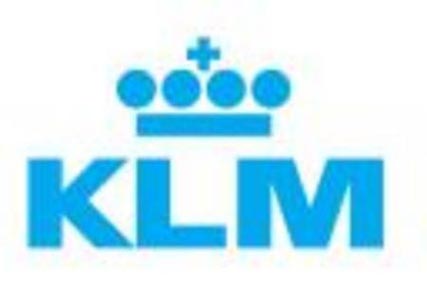KLM hopes to turn leftover meals into heat and energy
 Amsterdam - KLM Airlines is aiming to turn leftover airline meals and waste into oil and biogas to create electricity, in a process which would also heat the Netherlands' main airport - saving money and carbon emissions.
Amsterdam - KLM Airlines is aiming to turn leftover airline meals and waste into oil and biogas to create electricity, in a process which would also heat the Netherlands' main airport - saving money and carbon emissions.
The airline currently produces around 20 tonnes of waste a day, mainly plastic and paper rubbish from meals, and the waste food itself.
Along with three partners, the idea is to turn the plastics back into a liquid fuel comparable to diesel, and the rest of the waste into biogas.
Turbines will then use those fuels to create electricity, and heat created from the process would be used to warm Schipol airport, or the nearby greenhouses which house agricultural production.
Speaking to the German Press Agency dpa, KLM spokeswoman Monique Matze said the airline "wants to process 20 tonnes of waste per day, primarily garbage from the airplane meals, into oil and gas."
A pilot scheme is to be launched next year in cooperation with sustainable energy developers to examine whether the undertaking is financially viable and contributes positively to the environment.
KLM has been working on the project, called Waste2Energy, for almost a year, together with Global Green International (GGI) - a Rotterdam-based company specializing in sustainable waste-processing solutions.
The other two partners are Efficient Energy Conversion Technologies (EECT) and sustainable energy consultant Altran.
Once up and running, KLM will provide GGI with its daily waste consisting of plastics, paper, and food.
GGI will then use a new, patented, pyrolysis-based technology to convert the plastics, themselves made from oil, into a liquid fuel comparable to diesel and the remainder of the waste into biogas.
Unlike traditional waste-processing incinerator plants, GGI does not burn, but only heats the waste, avoiding carbon dioxide pollution.
Then EECT's special Heron 2 turbine converts the fuel and gas into electricity that can be used on the airport.
The warmth produced in this conversion process can serve to heat Amsterdam's Schiphol Airport or is channelled to greenhouses located in Aalsmeer near the Dutch airport.
"It sounds as if a major installation is required, but that is not the case," explains EECT's business development manager Ruud van Arent.
"The entire installation, which comprises our Heron 2 turbine and GGI's waste conversion plant, is the size of approximately three freight containers," Van Arent says. "It will be placed on the premises of Schiphol Airport."
Today's international aviation regulations stipulate that all airplane waste is picked up and processed locally.
The consortium has calculated that if KLM can convert its 20 tonnes of daily waste into energy, it would save 100 euros per ton in waste pick-up expenses. In addition, the airline would save around 0.1 euros per KWh on its electricity bill.
Theoretically, the Heron 2 turbine could provide electricity to some 2,450 households with its 1.7-megawatt capacity. But what makes it truly unique, Van Arent says, is its unparalleled electricity return of 50 per cent.
"Existing gas turbines of a similar size have an electricity return of some 27 per cent," Van Arent says.
"The Heron 2 turbine's electricity return is unique in the world. Even big turbines usually do not go beyond 40 per cent."
Marcel ter Stege, CEO of GGI, who is responsible for the waste conversion process and provides the liquid fuel for EECT's gas turbine, says his company previously built a similar plant in Seoul, South Korea.
However, he emphasizes, the plant GGI is to build for KLM will be substantially more efficient.
"KLM will provide us with a predictable and set amount of daily waste, which enhances efficiency," he explains.
The consortium says the installation could be operative by August 2010.
EECT and GGI said that, if proven successful at Schiphol Airport, the mobile and relatively low-cost Waste2Energy installation would also be ideal for use in developing countries.
KLM said that if the pilot in the Netherlands works out, it intends to develop several mobile waste-processing plants on various airports the airline is using.
The airline's spokeswoman Matze says KLM preferred to "save time" and develop its own waste-processing plant today rather than initiate a partnership with other airlines to build a single installation on each airport that could be used by everyone.
"KLM thinks it has a waste problem which it aims to find a solution for by itself," she said.
The Dutch airliner did however not rule out cooperating with other partners at a later stage, in particular with Air France, which it merged with in 2004. (dpa)